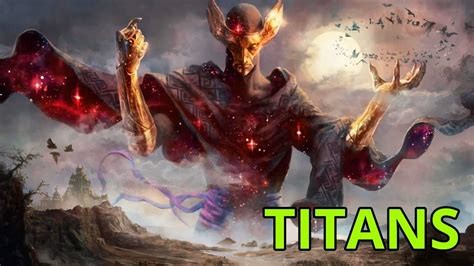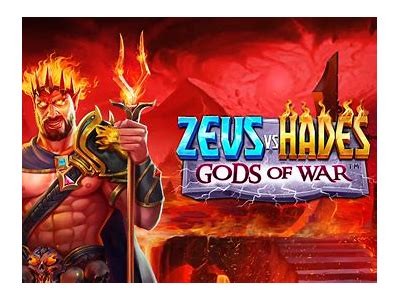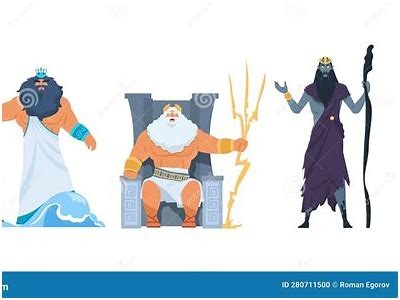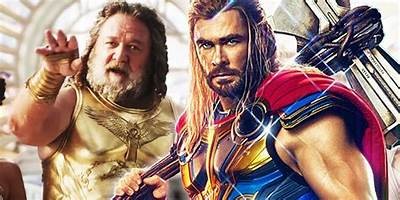In ancient Greek mythology, the pantheon of gods is filled with powerful beings, each representing different aspects of life, nature, and human experience. Among these deities, two figures stand out for their immense power and contrasting domains: Zeus and Hades. As the king of the gods, Zeus wields authority over the sky and thunder, while Hades rules the underworld, maintaining the balance of life and death. Their relationship, marked by rivalry and respect, is a fascinating examination of power and strength in mythology.

Zeus and Hades are brothers, sons of the Titans Cronus and Rhea. When Cronus learned that one of his offspring would dethrone him, he swallowed each child at birth, fearing the prophecy foretold by Gaia. However, Rhea saved Zeus by hiding him in a cave and giving Cronus a stone wrapped in swaddling clothes instead. Zeus eventually grew up to fulfill the prophecy, returning to rescue his siblings: Hestia, Hera, Demeter, Poseidon, and Hades. Unlike his brothers and sisters, Hades chose to rule the underworld, where he would govern the realm of the dead.

Zeus resides on Mount Olympus, where he presides over the other gods and humanity. His domain is filled with light, representing authority, freedom, and power. In contrast, Hades governs the somber underworld, an area often misunderstood and misrepresented in popular culture. While the underworld is indeed a place of death, it also serves as a necessary counterbalance to the vitality of Olympus. It is essential for maintaining the cycle of life and death, a theme that runs deep within Greek mythology.

Zeus is often depicted wielding a thunderbolt, symbolizing his control over the sky and weather. His fidelity to justice and order makes him an archetype of power and strength. Stories about Zeus often reveal not only his physical might but also his cunning intellect. He used trickery and manipulation to achieve his goals, such as when he transformed into various shapes to woo mortal women. Despite his power, Zeus is not without flaws, exhibiting traits of jealousy, vengeance, and a strong desire for control.

Hades, in contrast, is often unfairly portrayed as a malevolent figure. He is not the bringer of death but rather the keeper of the deceased. His attributes include wisdom, resilience, and an unyielding sense of duty. Hades is characterized by his role as a mediator, ensuring that the souls passing into his domain maintain their dignity and respect. He possesses a three-headed dog, Cerberus, who safeguards the entrance to the underworld, further symbolizing his strength and vigilance.

The contrast between Zeus and Hades brings about several myths that reflect their unique powers. One notable story involves the abduction of Persephone, the daughter of Demeter, by Hades. This event triggered Demeter's sorrow, leading to the changing of the seasons. Hades' action, while often seen as ruthless, was motivated by love and desire to share his eternal life with Persephone. Meanwhile, Zeus intervened and negotiated a compromise that allowed Persephone to spend part of the year with her mother and part with her husband in the underworld, illustrating the balance between life and death. The Role of Mortals
Mortals play a pivotal role in the narratives surrounding Zeus and Hades. Ancient Greeks would frequently invoke Zeus in prayers for protection and favor, while Hades, though feared, also received respect. Tomb inscriptions and rituals were dedicated to Hades to ensure safe passage to the afterlife. This duality in the relationship between the gods and humans illustrates the profound influence both deities had on Greek civilization. Lessons From the Showdown
The rivalry and respect between Zeus and Hades offer vital lessons about the nature of power. Their myths emphasize that strength is not solely about physical abilities but also encompasses wisdom, justice, and the acceptance of one’s role in the grand scheme of existence. Whether it’s Zeus leading the Olympians or Hades ruling the deceased, both are integral to the balance of the universe, serving as reminders that every form of strength has its place. Cultural Impact and Modern Interpretations
The dynamic between Zeus and Hades has transcended ancient texts, continuing to influence modern culture. Their representations in literature, film, and television show how the archetypes of these gods evolve over time. Contemporary narratives sometimes reinvent these figures, portraying them in more complex lights, reflecting modern values and beliefs about power, life, and death. Conclusion
The epic showdown between Zeus and Hades is a testament to the richness of Greek mythology, offering insights into the human experience. Their contrasting realms and responsibilities highlight the importance of coexistence between power, strength, life, and death. As we continue to explore these timeless stories, it is clear that Zeus and Hades are not just symbols of gods but reflections of the complexities of existence itself.